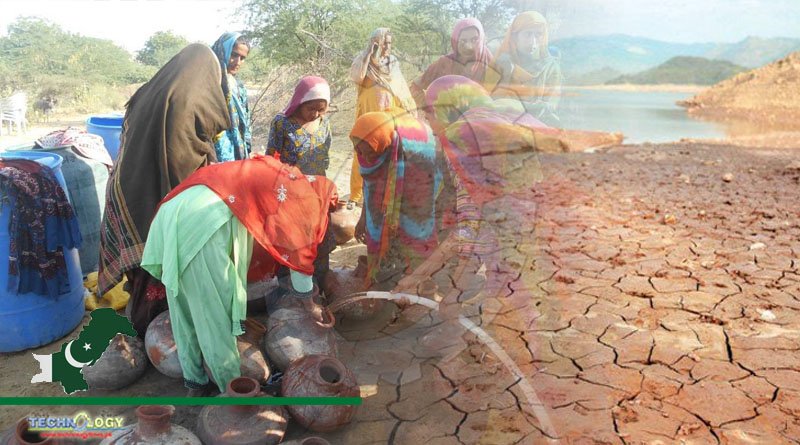“According to the World Resources Institute, Pakistan is ranked 14th out of 17 countries with “extremely high baseline water stress,” according to experts.
Experts at a seminar titled “Climate Change and Water-Related Challenges in Pakistan” stressed that water scarcity has become a serious threat to Pakistan’s long-term development and economic growth.
In addition to surface water, Pakistan’s groundwater resources—the last resort for water supply—are severely depleted, primarily for irrigation purposes.
Dr. Zulfiqar A. Bhutta, founding director of the Aga Khan University’s Institute for Global Health and Development, stressed the importance of water security and nutrition in Pakistan on Tuesday, emphasising that one cannot be managed without the other.
“Water is a threat to the country’s development on par with nutrition. By 2016, there were only 1,000 cubic metres of water left for each person in Pakistan—the “bare minimum,” Dr. Bhutta said, addressing a seminar titled “Climate Change and Water-related Challenges in Pakistan: Tangible Solutions.”
The two-day conference brought together national and international scientists, policy advisors, experts, and climate change officials from the provincial and federal governments to share evidence-based perspectives on how to achieve water safety, security, and population health.
According to experts, if current trends continue, Pakistan may face an alarming level of water scarcity by 2025.
Scientists and policy advisors shared their perspectives at a seminar on hosted by the Aga Khan University’s Institute for Global Health and Development, the national hub of the United Nations’ Sustainable Development Solutions Network.
Professor James Wescoat, the Aga Khan Professor at the Massachusetts Institute of Technology, spoke about climate change and critical water problems in Pakistan’s Indus Basin. He expressed grave concerns about increased flooding and drainage issues worsening by 2050, particularly in the lower Indus Basin.
“We must support bold and pragmatic approaches to reconstruction, such as water and climate research networks and Indus Basin models that prioritise health and well-being,” he said in his keynote address.
Dr. Nausheen H. Anwar of Karachi Ubran Lab emphasised the importance of resilient cooling pathways in the face of rising temperatures and extreme heatwaves.”Pakistan requires reliable, affordable, and sustainable energy for cooling resilience and adaptation,” she said.
According to the World Resources Institute, Pakistan is ranked 14th out of 17 countries with “extremely high baseline water stress,” according to experts at the event.
Water stress, however, is only one aspect of water security. The outlook for this challenge, like any other, is dependent on management. Saudi Arabia and Namibia, two of the most arid and water-stressed countries, have effectively secured their water supplies through proper management.
Approximately 96% of Pakistan’s freshwater is used for agriculture, which will account for nearly 23% of the country’s GDP in 2021. Despite this, the country is still reliant on a single river system and unreliable water infrastructure.
Climate change impacts, such as frequent floods, droughts, and the accelerated melting of glaciers in the country’s north, are added to this list. The health and nutrition consequences of a recent flood episode are unfortunate examples that call for immediate and collaborative action at all governance and policy levels.
